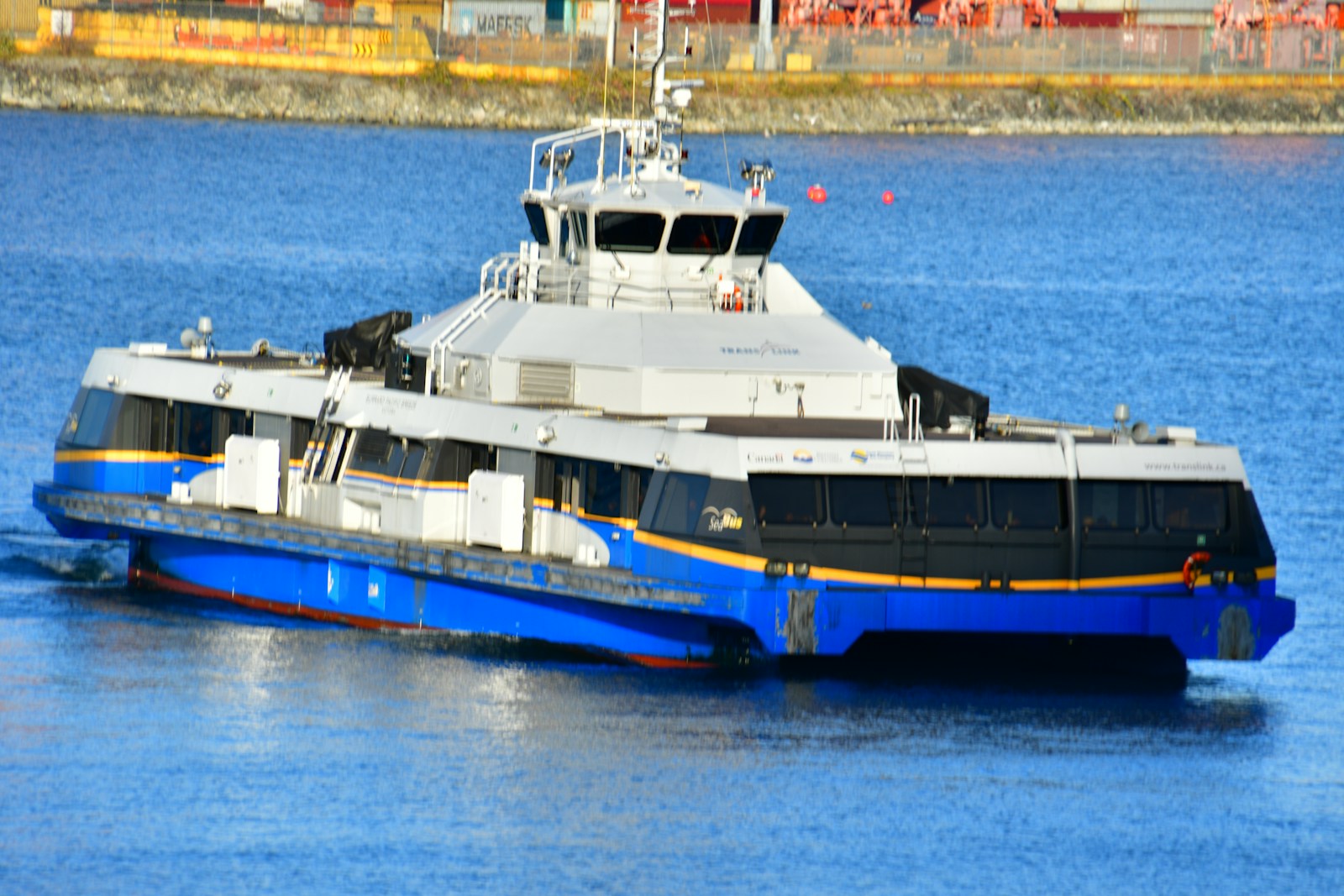1. Understanding the Significance of a Pleasure Craft Sale
The recent Pleasure Craft Sale announced through an official communiqué has captured the attention of both the maritime industry and the business community in Mauritius. The sale of a leisure boat may appear as a simple transaction, yet it carries broader implications for the local economy and the dynamics of asset management. From tourism to private ownership, pleasure crafts are an integral part of the island’s lifestyle economy.
In many coastal nations, the sale of pleasure boats reflects not only private investment but also a thriving ecosystem of services. These include boat maintenance, marine insurance, financing, and docking facilities. Each sale creates a ripple effect across several sectors, contributing to job creation and economic growth. In Mauritius, where maritime activities play a central role in tourism and recreation, the impact of such sales extends beyond the immediate buyer and seller.
What makes this communiqué noteworthy is its transparency and formality. An official announcement signals regulatory compliance and provides reassurance to stakeholders. It ensures that the transaction is not just a private exchange but part of a monitored, structured process. This type of communication fosters trust within the business environment, reinforcing the credibility of economic activities related to leisure assets.
2. Pleasure Craft Sale and Its Link to Mauritius’ Economic Activity
At first glance, a Pleasure Craft Sale may seem like a niche market event. However, its role in the broader economic activity of Mauritius should not be underestimated. Maritime leisure assets often act as high-value goods, attracting foreign buyers, boosting investment, and strengthening trade networks. The visibility of these sales highlights the interconnectedness of tourism, real estate, and financial services with the boating industry.
For Mauritius, known for its vibrant tourism sector, the sale of leisure boats is aligned with the country’s strategic positioning as a high-end destination. Tourists and residents who invest in pleasure crafts contribute significantly to luxury spending and local service demand. Yacht marinas, specialized workshops, and coastal infrastructure all benefit from these transactions. This creates a multiplier effect that supports the overall economy while promoting Mauritius as a maritime hub.
Moreover, official sales of confiscated or released assets when announced through government communiqués strengthen the rule of law and ensure economic fairness. They prevent misuse of property, create revenue for the state, and reaffirm that asset transactions remain transparent. This process enhances investor confidence, which is vital for long-term economic development.
3. Pleasure Craft Sale:Regulatory Oversight and the Business Value of Transparency
A Pleasure Craft Sale communicated officially also underscores the importance of regulatory oversight. In a global economy where financial transparency is highly valued, Mauritius benefits from demonstrating that even leisure asset sales are managed with accountability. This helps protect against fraudulent practices and ensures that all stakeholders from financial institutions to end-users can operate in a secure environment.
Regulatory oversight provides two critical benefits. First, it guarantees compliance with maritime and trade laws, ensuring that boats sold meet safety and ownership requirements. Second, it fosters a business environment where both local and international investors feel confident to engage in transactions. This combination of compliance and trust creates a stable platform for economic activity, particularly in sectors involving high-value assets like pleasure crafts.
Furthermore, transparency in sales processes enhances the reputation of Mauritius on the global stage. As the country continues to attract international investment, every step toward openness strengthens its standing as a reliable jurisdiction. By treating leisure boat sales with the same seriousness as other economic activities, policymakers showcase a commitment to sustainable growth and economic resilience.
Pleasure Craft and Legal Implications
Overview of Legal Context
The Pleasure Craft sale triggered by a court order brings to the fore a range of legal implications that extend well beyond a simple transfer of ownership. When a vessel is confiscated and subsequently sold, the judiciary must ensure that the sale process adheres to domestic maritime law, civil procedure, and any international conventions that may apply. Clear documentation, chain-of-custody records, and adherence to statutory notice periods are essential to validate the sale and to protect the rights of all stakeholders involved.
Title and Ownership Verification
One of the primary tasks in a court-ordered Pleasure Craft sale is establishing indisputable title. Title issues can be complex: there may be mortgages, liens, or competing claims from financial institutions, private buyers, insurers, or third parties who provided services to the vessel. The court typically reviews registration records, mortgage filings, bill of sale documents, and payment histories to determine the lawful owner. Proper resolution of title is crucial to prevent future disputes and to ensure that the buyer receives a marketable interest in the craft.
Claims, Liens and Priority
Confiscated assets often carry encumbrances. Creditors may lodge claims or liens against the Pleasure Craft, and the court must adjudicate these claims in accordance with priority rules. Maritime liens such as those for salvage, crew wages, or damage may have priority over other secured interests, depending on jurisdiction. The sale process must account for the satisfaction or subordination of such claims, and the distribution of proceeds typically follows a legally prescribed waterfall that protects higher-priority creditors first.
Insurance and Indemnity Considerations
Insurance questions commonly arise when a confiscated vessel is sold. Insurers may contest coverage if the loss is connected to alleged unlawful acts by the prior owner. The new buyer also needs clarity about the extent of transferable coverage or the requirement to obtain fresh insurance before leaving port. Courts and administrators managing the sale should ensure that the buyer understands any residual liabilities and the necessity for indemnities where appropriate to shield new owners from latent claims.
Third-Party Rights and Good-Faith Purchasers
A central legal concern is protecting the rights of good-faith purchasers. Jurisdictions that recognize the doctrine of bona fide purchaser for value without notice may provide stronger post-sale protection, enabling commerce to proceed smoothly. However, when purchasers acquire a Pleasure Craft from a confiscation sale, transparency and adequate public notice are vital to mitigate the risk of subsequent challenges by prior claimants. The court’s careful handling of the sale process is therefore integral to achieving legal finality.
Compliance with Maritime and Environmental Regulations
Legal compliance extends to maritime safety and environmental regulations. The sale of a Pleasure Craft must account for certification, safety inspections, pollution control measures, and any outstanding regulatory violations. Authorities may require defects to be rectified or certifications updated before transfer. Ensuring compliance protects the buyer and the public, and it demonstrates that the judicial process supports lawful and responsible maritime commerce.
Practical Steps for Legal Closure
Finally, courts and administrators usually follow a checklist to secure legal closure: publish notices, verify title and liens, confirm regulatory compliance, arrange for inspection and valuation, and implement a transparent bidding or auction process. Proper documentation of each step is retained in the public record to reduce the risk of future litigation. When executed correctly, a court-ordered Pleasure Craft sale not only enforces the law but also returns economic value to the state or creditors while preserving market integrity.
Pleasure Craft: Market Dynamics and Valuation
Market Context and Demand Drivers
The market for a Pleasure Craft Sale is shaped by a constellation of demand drivers: tourism trends, disposable income levels, seasonal demand spikes, and the availability of marina infrastructure. In island economies and coastal regions, yachting and boating often represent a premium segment of the leisure economy. Buyers range from local enthusiasts to international investors, and each segment assigns different utility and price sensitivity to a vessel. Understanding these dynamics is essential when valuing a craft for sale under legal supervision.
Factors Influencing Valuation
Valuing a Pleasure Craft Sale involves both objective measurements and market sentiment. Key objective factors include vessel age, engine hours, maintenance history, hull condition, outfitting, onboard systems, and class or certification status. Market sentiment is affected by rarity, brand reputation, and comparables recent sales of similar models in the region. An independent marine survey is indispensable to establish condition-related metrics, while market comparables help set realistic price expectations for prospective buyers.
Valuation Methodologies
Several valuation methodologies are commonly used for a Pleasure Craft Sale. Comparative market analysis (CMA) looks at sales of similar craft adjusted for condition and equipment. Cost approach methods calculate replacement costs minus depreciation. Income methods, less common for pleasure crafts, may be relevant when a vessel generates charter revenue. For court-ordered sales, a conservative approach often prevails: combining a professional survey with recent market comparables to derive a defensible reserve value for auction or negotiated sale.
Timing, Seasonality and Sales Strategy
Timing affects price realization for a Pleasure Craft Sale . Peak yachting seasons typically yield higher buyer interest and stronger bids. Conversely, off-season sales may necessitate discounts to achieve quick disposition. Courts and asset managers must balance maximizing proceeds with practical constraints like storage costs and legal timelines. Auction formats live, online, or sealed bids each have pros and cons. Online auctions broaden buyer pools but require robust marketing; live auctions can spur competitive bidding but depend on turnout.
Marketing and Buyer Outreach
Effective marketing heightens visibility and draws qualified buyers. Asset managers preparing to sell a Pleasure Craft Sale should use targeted channels: marine brokerage networks, specialized yachting marketplaces, regional marina contacts, and high-net-worth private dealer lists. High-quality imagery, survey reports, and transparent documentation increase buyer confidence. When buyers can easily verify condition and title, the transaction flows more smoothly and often yields better financial results.
Post-Sale Valuation Reconciliation
After the sale of a Pleasure Craft Sale, administrators reconcile proceeds against outstanding claims and costs. The realized sale price is compared to pre-sale valuations; discrepancies are analyzed to learn lessons for future dispositions. If the proceeds cover liens, fees, and statutory costs, the residual is distributed per legal priorities. Accurate valuation and responsible sales conduct maximize recovery while maintaining credibility with stakeholders, including creditors and the public.
Pleasure Craft Sale: Operational Considerations and After-Sale Management
Transfer Logistics and Documentation
Once a Pleasure Craft Sale changes hands, practical operational considerations take center stage. Proper transfer logistics registration updates, bill of sale, de-registration and re-registration where applicable ensure the new owner can legally operate the vessel. Port authorities, maritime registries, and customs agencies often require formal documentation that proves the legality of the sale, payment of relevant duties, and satisfaction of any outstanding encumbrances. Administrators facilitating a court-ordered sale should provide a complete transfer packet to assist buyers.
Condition Handover and Maintenance Planning
Buyers of a Pleasure Craft Sale typically expect a handover that includes recent service records, engine maintenance history, and evidence of compliance with safety inspections. Transitional maintenance planning such as immediate servicing, re-certification, or replacement of expired safety gear should be anticipated and often factored into buyer budgets. Asset managers may coordinate pre-sale servicing to improve saleability, but courts also need to avoid artificially inflating costs that reduce net recoveries.
Berthing, Transport and Logistic Costs
Logistics such as berthing, transport (if the buyer is overseas), and short-term storage can materially affect the net proceeds from a Pleasure Craft Sale sale. Moving a vessel to a more marketable location or to a marina with better buyer access may increase sale outcomes but incurs costs. Courts and administrators must weigh the marginal benefit of relocation against time and expense. Transparent disclosure of any logistics performed is essential for post-sale accounting.
Regulatory and Tax Implications for New Owners
New owners of a Pleasure Craft must consider registration fees, VAT or import duties, and ongoing taxes or levies applicable in their jurisdiction. Tax treatments vary widely some jurisdictions tax the importation of vessels heavily, while others provide incentives for local maritime investment. Buyers should receive guidance on potential tax liabilities and compliance timelines to prevent post-purchase surprises.
Warranties, As-Is Sales and Buyer Protections
Many confiscated-asset sales are conducted “as is,” limiting post-sale warranties. For buyers, this increases the importance of pre-sale inspections and professional surveys. Courts may, however, provide limited assurances about title validity. Clear terms stated in the auction or sale notice about liabilities, return policies (if any), and dispute resolution mechanisms help manage buyer expectations and reduce litigation risk. Strongly worded disclaimers combined with full disclosure of known defects strike a balance between buyer protection and practical finality.
After-Sale Stewardship and Community Perception
Finally, after-sale stewardship matters for community perception. Responsible disposal and transfer of a confiscated Pleasure Craft Sale demonstrate that public assets are managed ethically and transparently. If proceeds support public programs, administrators should communicate outcomes to reinforce the social value of the process. Positive after-sale reporting helps sustain trust in judicial and administrative institutions and supports the broader economic ecosystem connected to marine leisure activities.
Business Transparency and Market Integrity
The pleasure craft sale has also reignited discussions about transparency in Mauritius’s economic and legal environment. Public trust in market transactions is strongly linked to the visibility and fairness of such court-ordered processes. When confiscated assets are sold under clear judicial supervision, it sends a powerful message about accountability and integrity in the system.
For businesses and entrepreneurs, these actions highlight the importance of compliance and governance standards. By aligning with the rule of law, companies can strengthen their reputation and avoid risks that may lead to legal disputes or asset seizures.
To understand more about how strategic decisions and economic compliance shape the business climate, you can explore related insights in our Economic Activity Mauritius
On a broader scale, global institutions also emphasize the importance of asset transparency. The International Monetary Fund – Financial Sector provides valuable guidelines on financial governance and asset management, reinforcing the standards Mauritius strives to uphold.
Conclusion: From Sale to Sustainable Outcome
Managing a Pleasure Craft Sale sale from legal, valuation, and operational perspectives requires coordinated effort among courts, surveyors, marine brokers, and administrators. When each phase is handled transparently and professionally, the transaction converts a confiscated asset into meaningful economic recovery, while safeguarding buyer rights and preserving the integrity of the maritime market.




